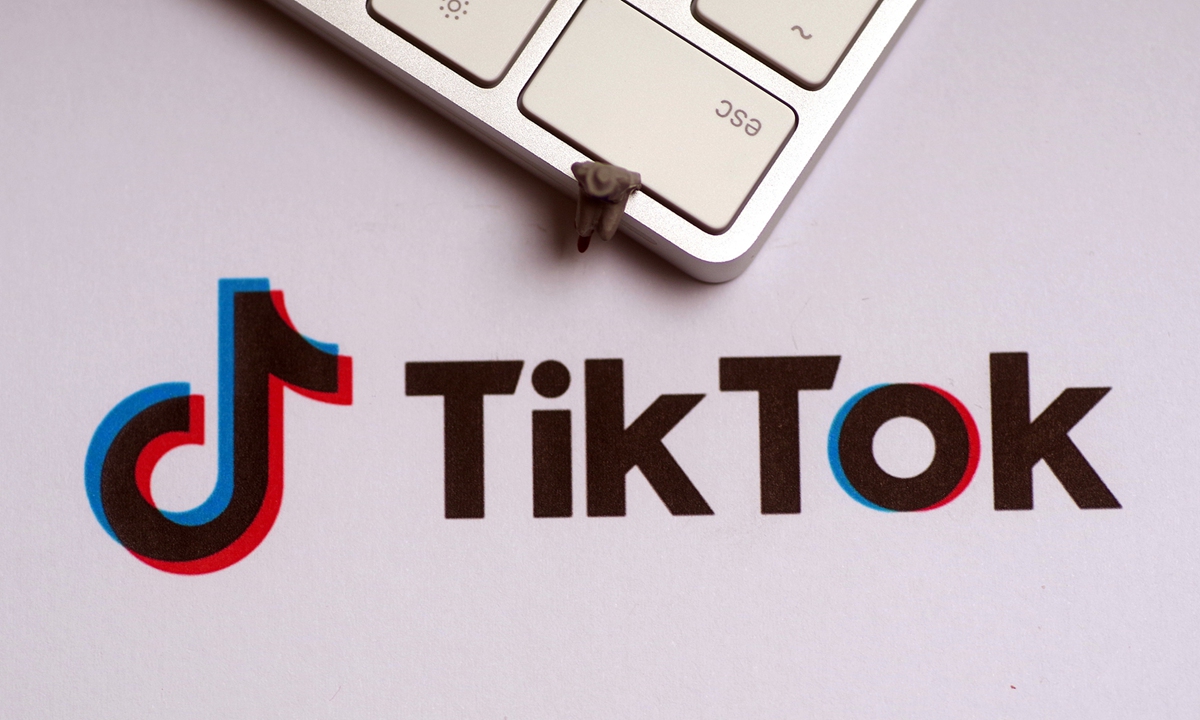US degrades from innovator to digital rogue
By Wang Wenwen Source: Global Times Published: 2020/8/4 20:18:40

Photo: VCG
The US is showing its nature as a digital rogue state, as TikTok waits for its destiny. US President Donald Trump threatened to shut down this widely popular Chinese-owned video-sharing app in the US. He also said he was ready to approve a purchase of the US operations of the app, only if his government receives a share of the deal.
TikTok is not the only Chinese app that faces such uncertainties. US Secretary of State Mike Pompeo on Sunday indicated that WeChat, another Chinese-developed popular social network app, and others may also be banned in the US.
In the past few decades, the US has claimed to be an engine of innovation. It models itself on a particular ideal of innovation, and such innovation is the lifeblood of the modern US economy, as well as world economy. Internet giants such as Apple and Facebook have always strived to create the next great thing, and their innovation has successfully changed people's way of life.
During this period, China's technology sector was also booming. Now, TikTok has stood out, becoming an app with a genuinely creative culture, loved by millions of young Americans, and breaking Facebook's monopoly. It is a product of Chinese innovation against the backdrop of China's internet development.
Washington has used the rhetoric of "suppression of freedom" to knock China's regulation of the internet. TikTok, which grows under such a "suppressive" environment, has become so popular that the US president and US tech companies can hardly bear it. Facebook has long viewed TikTok as a rival. As Facebook failed to copy TikTok, it can only collude with the US government to suppress TikTok. With such a US internet giant ending up like this, will others follow suit? When free market competition doesn't work, these companies rely on Washington to win. How could one expect such a US to innovate?
After all, the US fears it would lose in the high-tech race it launched with China. It is such a fear of losing that leads the US to resort to cracking down on its competitors rather than bolstering its own innovation to save its declining power. It is also this mentality that makes the US not the engine of innovation anymore and unable to create such popular apps as TikTok and WeChat.
If TikTok is banned or forced to be sold, it means the US will set a precedent that successful companies, both in the US and in the rest of the world, would face such a destiny when they become too popular. The US is never short of excuses to justify its lowdown tactics. How the US maintains its dominant position in technology and economy reflects its mentality as a digital rogue. But the consequence is that the US will impede its future technological innovation. For the US, it's tantamount to crippling itself.
While China is busy innovating, the US is guarding against an innovative China. This twisted behavior has prevented the US from continuing to innovate and reform. The dominant position it acquired, or its hegemony, is becoming a self-inflicted fetter for its progress.
Posted in: OBSERVER,CHINA-US